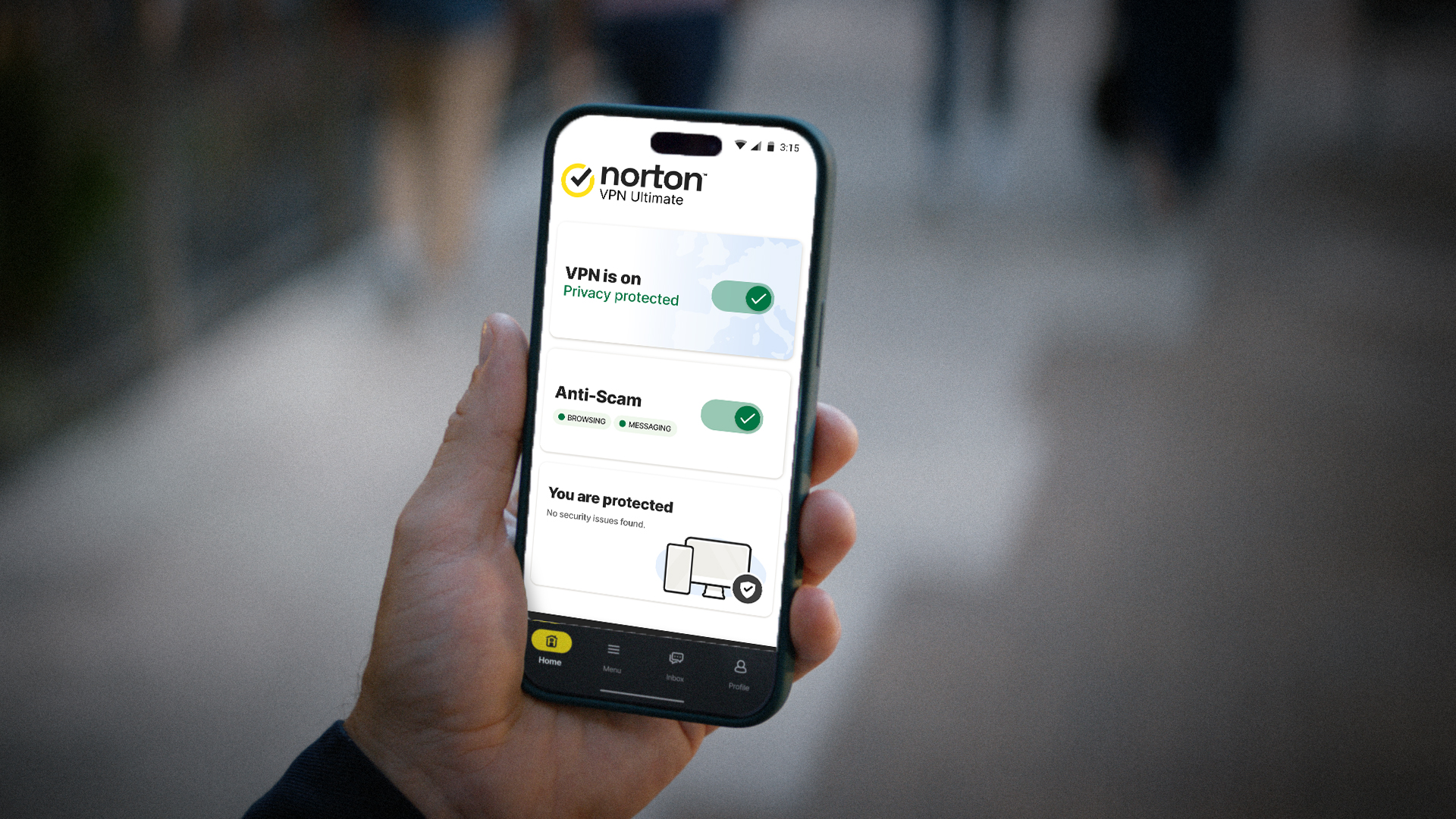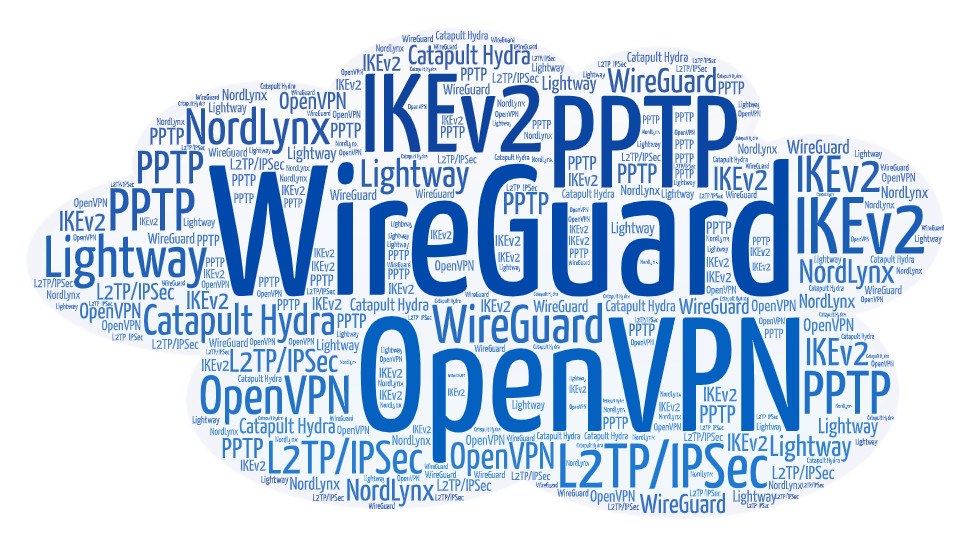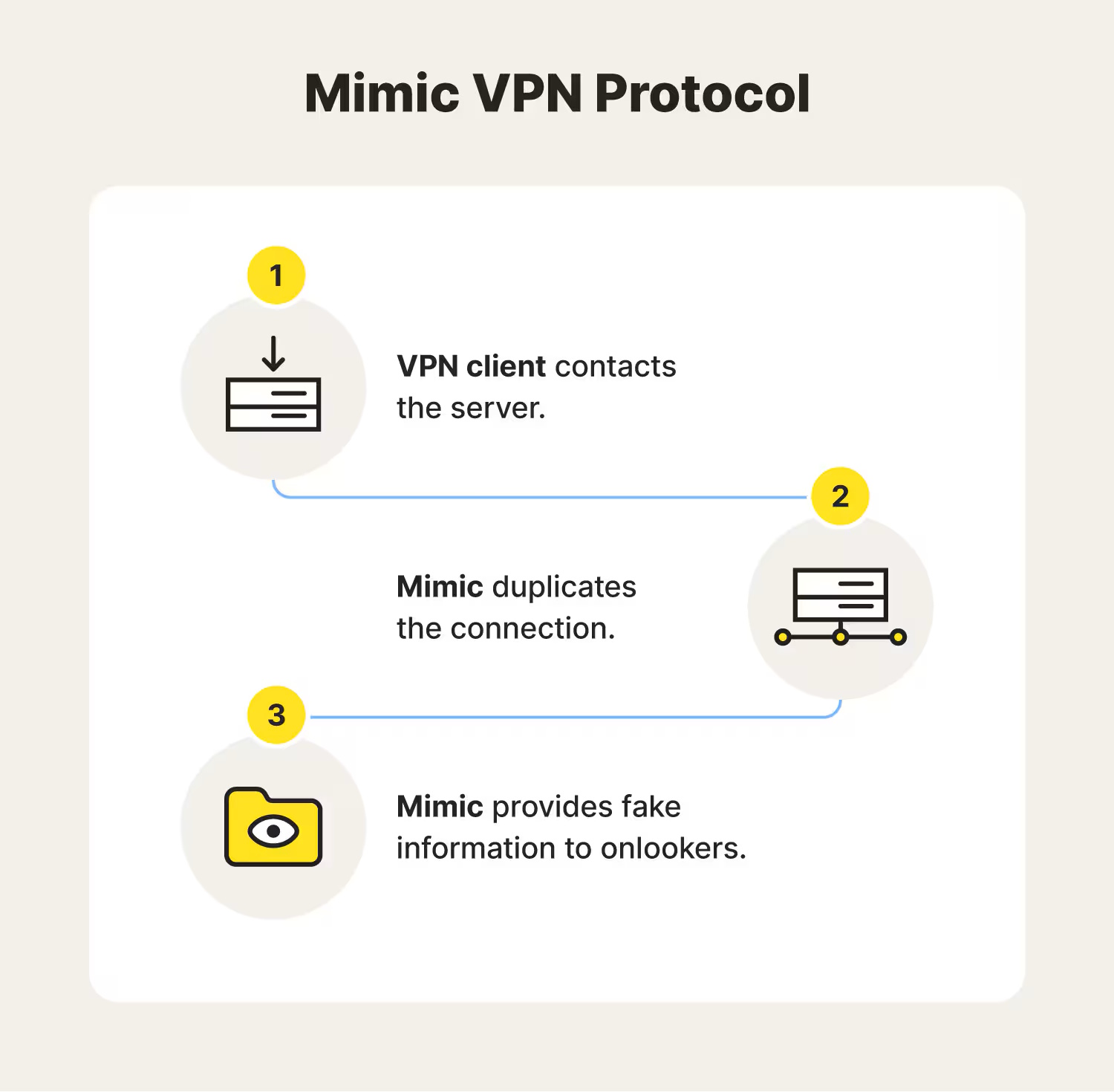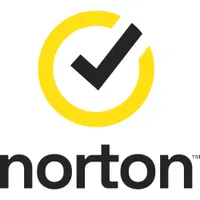Sponsored by Norton VPN
What protocols does Norton VPN offer? Mimic and more explained
Going above and beyond OpenVPN and WireGuard

When it comes to VPN protocol options, Norton VPN has a healthy selection of four to pick from.
This matters, as it should mean there is something to suit the needs of most VPN users, regardless of the situation.
There's the classic OpenVPN, which can be a good option for cross-platform compatibility and makes it ideal for installing on other devices.
If you want all out speed, then the more modern WireGuard is available and ideally suited to downloads, gaming or streaming. And then there's IPSec (IKEv2), which has been a long-standing reliable option that offers stability ideally suited to mobile use.
Alongside those usual suspects, Norton VPN also has its own proprietary protocol called Mimic that's designed to be super stealthy online.
Keep reading to learn more about the VPN protocols offered by Norton VPN and how they might benefit your online security.
Sign up to Norton VPN with TechRadar's exclusive offer
Our lucky readers in North America, the UK and Australia can take advantage of discounts on Norton VPN's feature-packed Plus and Ultimate plans thanks to this exclusive offer. All carry a generous 60-day money-back guarantee, meaning you can give Norton VPN a try risk free!
– Get Norton VPN in US & Canada with our exclusive deal
What is a VPN protocol… and why does it matter?
The VPN protocol is the part of your setup that decides just how your data is protected.
All your information is sent through a secure tunnel – how it gets encrypted, how it's transferred along the tunnel, and how tough it is to access by others, is all determined by the protocol.
For the most part, you're unlikely to even think about what protocol you're using. Norton VPN automatically picks the best one given your circumstances when you log in.
But what you class as best may vary from use-case to use-case. These are the instances when selecting a protocol manually can help; from the fastest to download a file, the most secure for sensitive data sharing, to the best at hiding itself for streaming
Picking the right option can have its advantages...
OpenVPN
Originally released way back in 2002, OpenVPN is still around for a good reason.
It offers AES-level encryption for excellent security but, as the name suggests, is also open-source. This means lots of settings can be varied for what is a highly configurable protocol and, as such, also represents broad cross-platform compatibility.
On the downside, it can be slower than newer options and chews through CPU-use when encrypting.
For Norton specifically, the OpenVPN option is on Windows and Android, but not Mac.
One major boon for Windows users is the Data Channel Offload feature that hands off encrypting to the device's hardware. The result is a much faster operation with lower latency.

WireGuard
More than a decade OpenVPN's junior, WireGuard is all about showing up the protocols of the past by being really, really fast.
As such this is the option for low latency and rapid downloads, all thanks to a lightweight design, modern and secure cryptography and a low overhead.
The downside is it can lack some of the more advanced configuration options of other protocols.
Norton VPN's WireGuard offering is powerful, hitting speeds of up to 909 Mbps in our real-world testing. That puts Norton in the same speeds league as the likes of NordVPN and Proton VPN that are generally regarded as being two of the fastest VPNs around.
However, it's not currently available on macOS or iOS devices.
IPSec
Internet Protocol Security, or IPSec – also known as Internet Key Exchange 2, or IKEv2 – is one of the older options, having survived the years thanks to its wide compatibility and super stability.
That makes it ideal for switching between wi-fi and data on a smartphone, for example.
It can benefit from great security when configured to suit that, although it uses more CPU than newer options and is less versatile than OpenVPN.
And be aware that that there are some commentators who have called its levels of security into question.
Norton VPN supports this on Mac and iOS devices and is what the company calls its "bank grade encryption" offering.
Mimic

The Mimic proprietary protocol from Norton is designed to be stealthy and blend in, making it ideal for accessing streaming platforms undetected or bypassing firewalls in certain countries or on specific networks.
Mimic disguises your connection so it appears to be coming from a standard HTTPS. The effect is that it means that the data packages it produces don't look like the type that are normally created when using a VPN. That leaves any potential snoopers unable to recognize that you're even using a VPN when Mimic is turned on.
It has CRYSTAL-Kyber-512 key generation, future-proofing protection against quantum threats, too.
It does mean this is slower than WireGuard and less customizable than OpenVPN, but it is available across Windows, Android, macOS and iOS platforms in the Norton VPN apps.
A great protocol option to have when others aren't able to bypass restrictions.
Luke is a freelance writer and editor with over two decades of experience covering tech, science and health. Among many others he writes across Future titles covering health tech, software and apps, VPNs, TV, audio, smart home, antivirus, broadband, smartphones, cars and plenty more. He also likes to climb mountains, swim outside and contort his body into silly positions while breathing as calmly as possible.

